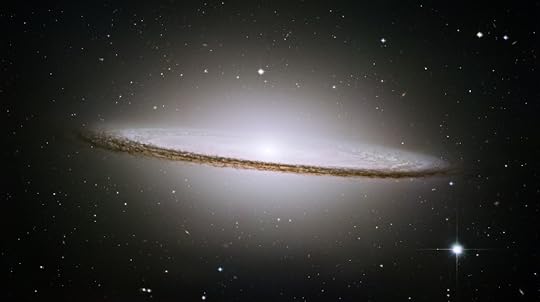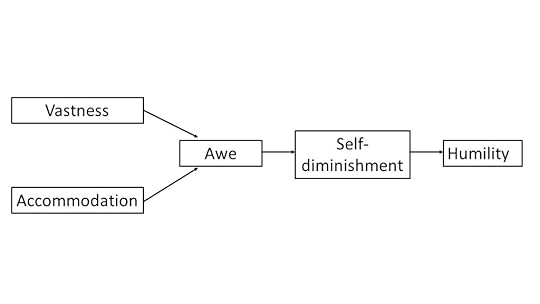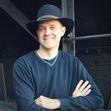Week 4, Day 1: Awe
For the joy of ear and eye,
for the heart and mind’s delight,
for the mystic harmony,
linking sense to sound and sight;
Lord of all, to thee we raise
this our hymn of grateful praise. (“For the Beauty of the Earth,” by Folliot S. Pierpoint, 1864)
 Sombrero Galaxy, Hubble Space Telescope. From Wikimedia Commons
Sombrero Galaxy, Hubble Space Telescope. From Wikimedia CommonsBecoming conscious is not an achievement: it is a gift. In the fourth week of this Advent-Epiphany devotional, I would like to turn to examine these gifts and gateways of consciousness.
In most of our daily life, we are barely conscious. We are unaware that our brain is actively working to keep continuity in what we see and hear until we are confronted with an illusion that makes us question our senses. We emote and act without thinking, relying on millions of years of conditioned reactions and a lifetime of programmed habits. We believe the stories we tell about ourselves. These are all ways we function without being conscious.
It isn’t “wrong” to move through a day this way. It’s natural. We can’t be conscious of our unconscious processes all the time: If I were to pay attention to how I’m walking, for example, it would suddenly become difficult to keep my balance or put one foot in front of the other. It’s easier to hand off this task to the unconscious part of my brain that makes walking feel normal. My unconscious brain is fast and efficient. My conscious brain is slower and more deliberate.
But life becomes much richer when I set aside time to become conscious, to marvel during mindfulness meditation at the way this body breathes all by itself, or to wonder at how my visual system creates color from chemical reactions in my retina. If I take time to notice, the act of noticing itself becomes a profound mystery, as the hymn above says. Neuroscientists are still discovering the “mystic harmony linking sense to sound and sight.” When I take time to marvel at consciousness itself, I find myself in awe.
Awe is a doorway into consciousness, helping us become more aware. Keltner and Haidt (2003) suggest that awe includes 1) a sense of vastness and 2) a need for accommodation. “Vastness” can be the experience of something big (like the Grand Canyon) or majestic (the musical sweep of a symphony) or even the presence of a beloved person or celebrity. This second experience, accommodation, relates to what my colleague Melissa Scott calls “right-sizing” (which I mentioned in an earlier post). We have to adjust our cognitive framework to fit new information. Sometimes this right-sizing means I see myself and my problems as much smaller. Sometimes it means feeling the gaze of God on me, as if I were the only one in the universe. We may feel simultaneously humbled and beloved.
 Appraisal tendency framework applied to awe (Stellar et al., 2017). From Wikimedia Commons
Appraisal tendency framework applied to awe (Stellar et al., 2017). From Wikimedia CommonsIn religious practice, we try to create such moments in worship with music, words, and ritual. I often feel such awe during a Christmas Eve candlelight service. We can also experience it in nature, although “chasing” awe in any setting can leave us feeling underwhelmed. I believe with practice or insight, we can also experience awe in very mundane moments. Thich Nhat Hanh talks about mindfully washing dishes and thanking them for their service.
The Christmas story evokes this kind of awe with the juxtaposition of highs and lows, divine and mundane: God as a baby in a feeding-trough. Angels appearing to shepherds. Ancient prophecies side-by-side with the frustration of finding a room in a crowded city.
And just as we often hear calls to “make Christmas last all year,” I think it is good to go into Christmas deliberately holding the door open for awe, letting ourselves become porous, so that we can be brought into a deeper consciousness of the mystery of God and of our own consciousness. Psychopharmacologist Roland Griffiths liked to ask, “Are you aware that you are aware?” We have the opportunity in Advent and Christmas to experience not only God’s incarnation, but our own.
Prayer: Awesome God, strike us with awe. Let us feel a deep reverence for all life and all experience.



